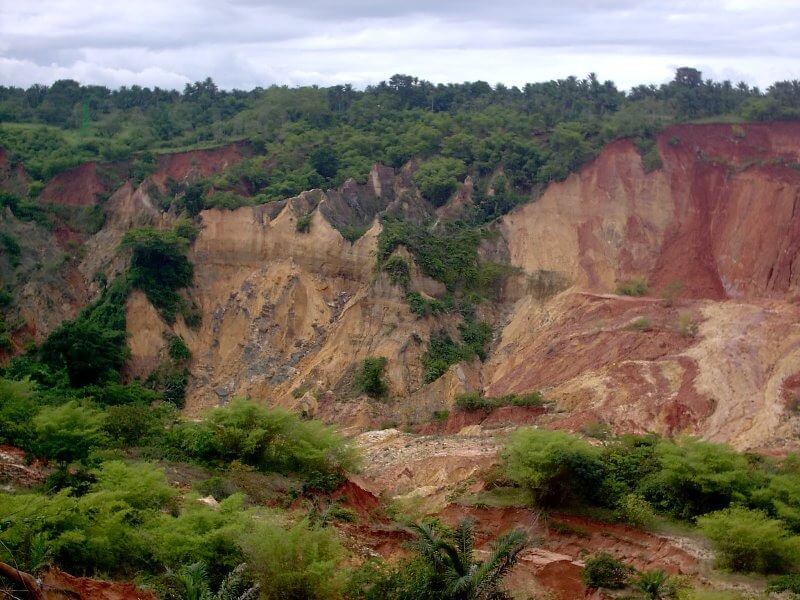Climate Change Adaptation In Africa (CADA) Programme
Climate change adaptation in Africa (CADA) is an initiative developed by PASDO and aimed at addressing the socio-economic impacts of climate change in Africa.

These gully erosion and landslide activities are believed to be among the worst impacts of climate change in Africa.
THE CHALLENGE
Global warming, caused by excessive emission of greenhouse gasses from human activities, is changing the climate.
Although the whole of the African continent contributes very little (less than 4 percent) to global greenhouse emissions, it is the continent that faces the worst impacts.
Thousands of people in Africa continue to lose their properties and means of livelihood as a result of extreme events fueled by climate change.
These events include drought and desertification, flooding, gully erosion and landslides, massive crop failures due to weather unpredictability, and others.
In the Nanka areas (in Anambra State) and other South Eastern states of Africa’s most populous country, Nigeria, destructions from flooding, gully erosion and landslides are particularly worse.
Poverty and hunger are becoming widespread.
This is creating a youth population that are increasingly becoming more vulnerable to social vices such as internet fraud, online love scams (known as “yahoo yahoo” in African parlance), prostitution, drug abuse and thuggery, kidnapping of important figures for ransom (including politicians, priests and diplomats), armed robbery, violent agitations and others.
In a recent onslaught targeted at the diplomatic community, armed youths attacked the convoy of the U.S. embassy in Anambra State, killing two staff of the U.S. consulate and two police officers.
The convoy, according to the U.S. government, were visiting Anambra State in relation to a flood response project sponsored by the the U.S. government.
In the words of Tony Elumelu, one of Africa’s top economists, “It is a lack of economic hope or opportunity that leads a young man to carry an AK47 and join a terrorist or bandit group.”
What PASDO Is Doing
Considering the various ways in which climate change negatively affects the livelihoods of Africans and fueling hunger and poverty in their land, it is important that the world, particularly the industrialized nations, provide some assistance to help Africans cope with the challenges.
In the words of the United Nations Secretary General, it “is a moral, social and economic imperative”.
PASDO’s Climate change adaptation in Africa (CADA) programme seeks to do just that through the following components.
Components of the Climate change adaptation in Africa (CADA) programme
There are currently three components of PASDO’s Climate Change Adaptation in Africa (CADA) programme.
They include the:
1. Food Aid for Climate Change Adaptation in Africa (FACADA).
2. Vocational Education for Climate Change Adaptation in Africa (VECADA), and
3. Market Access for Climate Change Adaptation in Africa (MACADA).